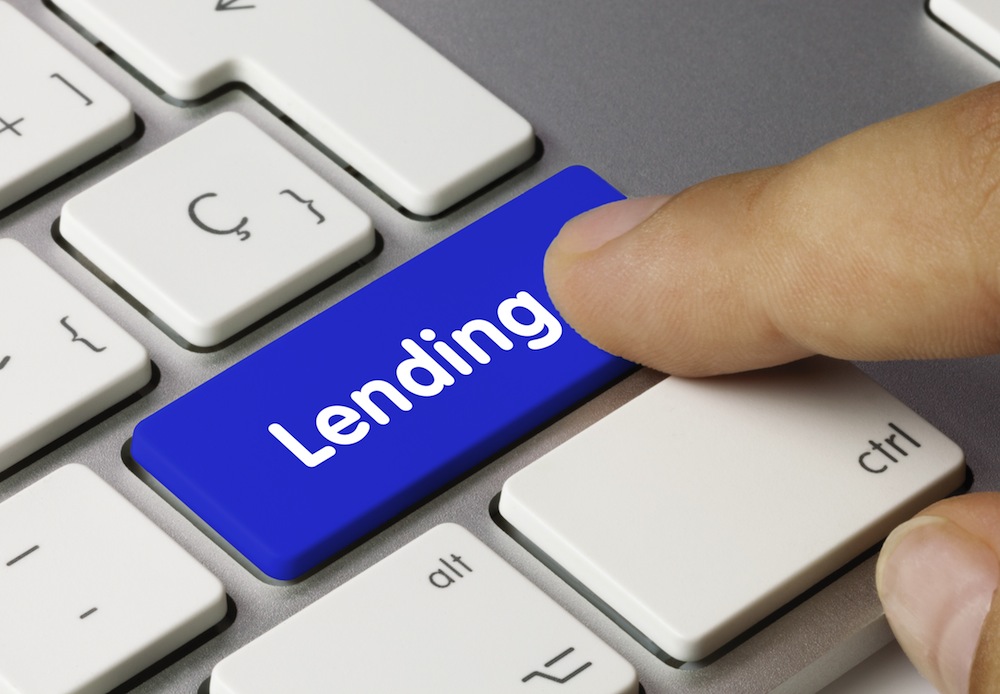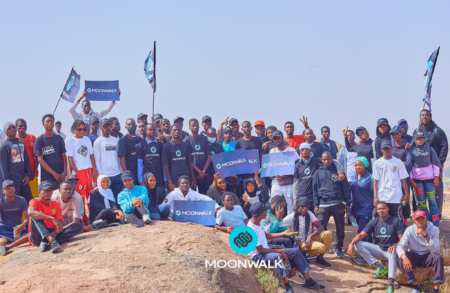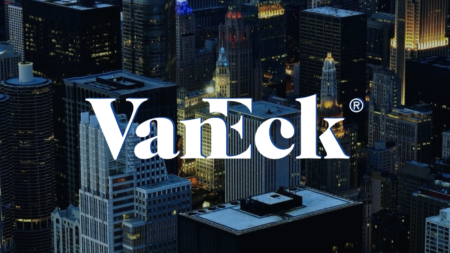Checks, Open Editions, Sewer Passes….NFTs have been making headlines lately, and it’s not just for their eye-popping price tags. The rise of NFT lending is adding fuel to the fire, with a record-breaking $444 million in monthly volume reported for January alone.
While NFT loans may boost liquidity in the market, the volatile nature of NFT valuations means that lenders could be taking on significant risk. So, will NFT lending be a blessing or a curse as the NFT market tries to make a resurgence? Let’s examine the top marketplaces already making bank and a few new protocols that could shake up the NFT lending landscape.
NFT Lending Explained
NFT-based loans offer a unique way for investors to leverage their digital assets without parting with them. By using NFTs as collateral, users can obtain a crypto or fiat loan to buy more NFTs, invest in DeFi, or convert to fiat. The beauty of this lending model is that the NFT remains in the user’s possession as collateral, which the lender can only claim if the borrower defaults. This way, the lender is protected, and the borrower can maintain ownership of their valuable digital asset.
Best Places for NFT Loans
BendDAO
The leading NFT lending platform reported a record-breaking month, offering over 4,399 loans on popular NFTs such as Azukis, Mutants, and BAYC. In the last 30 days, BendDAO also saw a 377.5% increase in borrowers using the platform to earn a higher yield on their assets, paid out in their native BEND token.

It is the first decentralized peer-to-pool NFT liquidity protocol, offering instant NFT-backed loans, collateral listing, NFT down payment, and ETH liquidity provision. The platform offers innovative features such as NFT sellers receiving up to 40% of their listing’s floor value before it sells and buyers being able to purchase blue-chip NFTs with a minimum 60% down payment and a flash loan from AAVE.
NFTfi
NFTfi is a P2P platform for lending and borrowing against NFTs. Unlike other platforms that set borrowing rates, NFTfi offers borrowers the flexibility to negotiate loan terms with individual lenders, potentially leading to better rates.
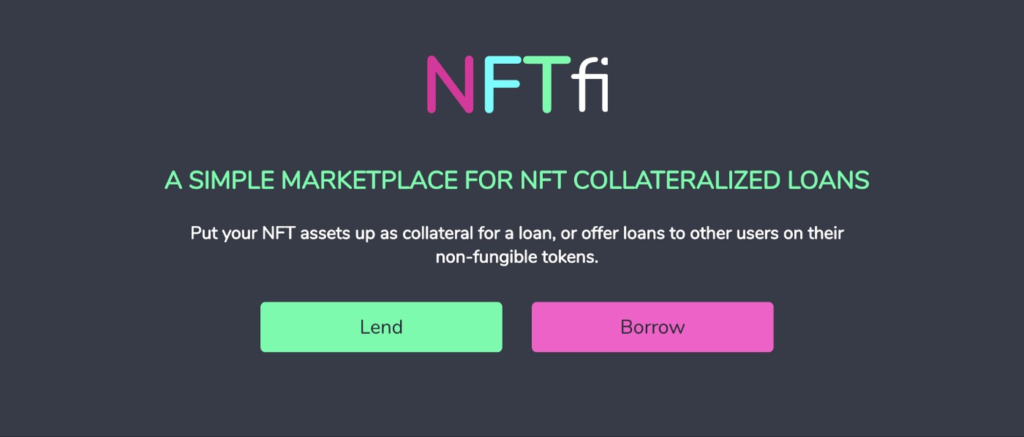
NFTfi also has a decentralized arbitration system to settle disputes. With its user-friendly interface and innovative features, NFTfi is quickly becoming a popular choice for those looking to leverage their NFT holdings.
Arcade
Arcade is a unique P2P lending platform that enables NFT holders to unlock liquidity on one or more of their NFTs. Like NFTfi, borrowers and lenders can set their own loan terms, and they can negotiate with each other using a signed message on the dApp.
Borrowers can define the funding type, duration, and interest rate (APR) on loans collateralized by their NFTs. While loan terms are agreed upon off-chain, settlement is performed on-chain, ensuring that all transactions are secure and transparent.
X2Y2
This major NFT marketplace sets itself apart from its peers by offering NFT lending. Lenders can optimize their ETH usage by making multiple loan offers with varying durations. For example, one can make three loan offers with durations of 7, 14, and 30 days on the same spirit azuki for 50 ETH at X2Y2, while on other platforms, they would need to create multiple accounts to make the same offers.
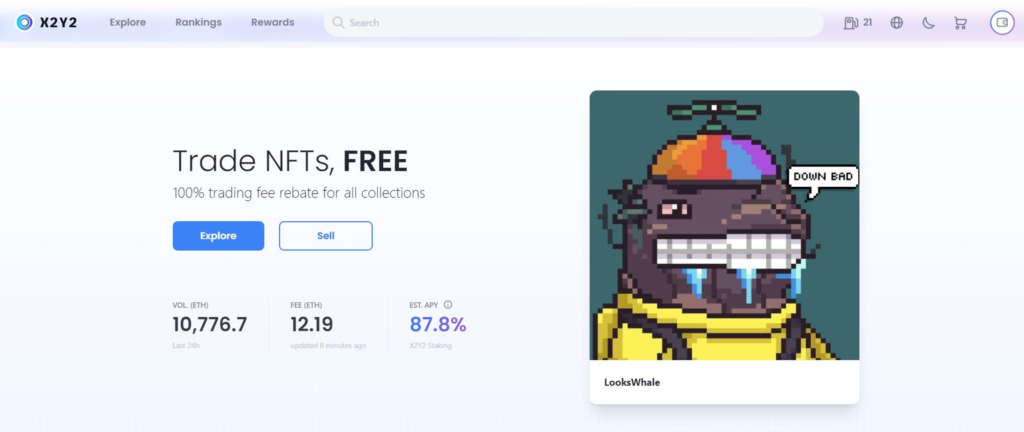
The platform also allows users to make collection-wide loan offers as well as specific offers on NFTs with unique and desirable traits.
New platforms coming this year
Fungify
Fungify, a new NFT lending platform, has raised $6M in a funding round led by CitizenX and featuring several prominent angel investors including: Joe Eagan (ex-president of Polychain Capital) and Mark Borsten (Merit Circle founder).The platform allows users to invest in $NFT, a decentralized NFT index token that is backed by and redeemable for NFTs contained within the Fungify MarketVault.

This provides access to a broad set of community-curated NFTs without concern for the illiquidity of any individual NFT. To quote Fungify’s founder: “Nobody wants a stablecoin or Ether derivative backed by monkey jpegs. They want exposure to the monkey jpegs themselves. And they want it without needing tens of thousands of dollars.” Fungify is set to launch in Q1 or Q2 of 2023, following the completion of security audits.
Astaria
Astaria, founded by a Sushiswap and Consensus alum, raised $8M in 2022 and is currently finalizing its security audits. The platform features an innovative appraisal system where an appraiser writes a term sheet about an NFT and determines the loan amount and interest rate.
Lenders can then select loans from a pool of available options, eliminating the need for time-consuming searches for the best borrowing rates. Unlike other platforms, Astaria doesn’t require two-way approval before transactions begin, making the lending process even more efficient.
Zharta
Zharta, which recently completed a successful audit by Hacken and raised $4.3 million in seed funding, has been in soft launch mode for the past few weeks. The platform’s protocol offers instant, permissionless loans through a user-friendly and accessible interface, leveraging AI appraisals and DeFi pools to optimize liquidity and security.
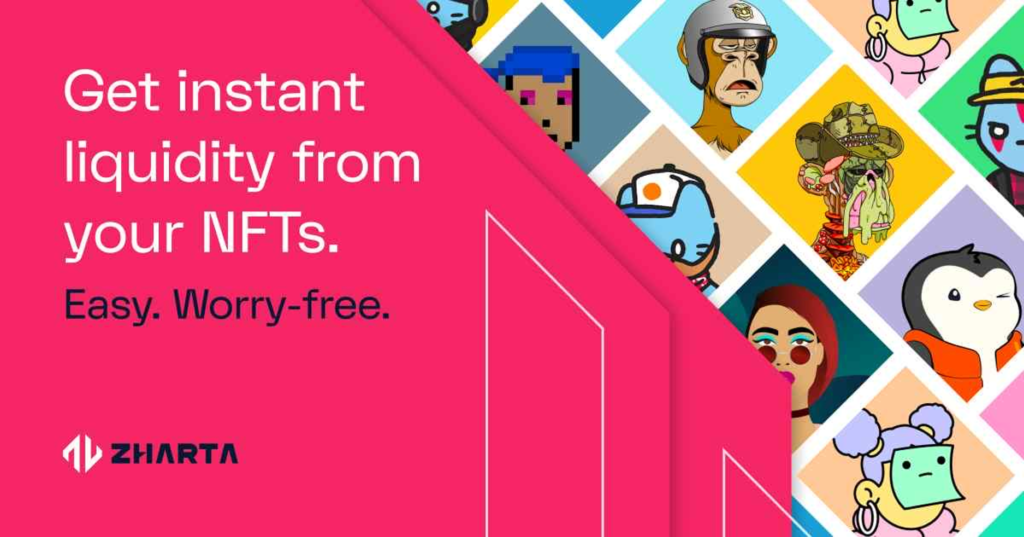
In addition, Zharta is introducing the ability to bundle multiple NFTs from one or more collections as collateral for a single loan, which is particularly beneficial for collectors with assets of lower individual value.
Current Dangers of NFT Lending
Loss of NFT holder benefits
During the launch of Apecoin, one individual bought a Bored Ape on OpenSea for under $300,000, used it as collateral for a flash loan, and used the loan to buy a large amount of tokens in a vault on NFTX. They redeemed five Bored Ape NFTs in the vault, claimed 60,564 ApeCoin, and sold them for $1.1 million on Uniswap.
The rules on airdrops for NFT’s used as collateral varies: x2y2 will not honor any airdrops while they have your NFT on hold and NFTfi will not honor airdrops if the snapshot is taken after the loan has been placed. BendDAO makes sure that all airdrops are collected and then distributes them fairly to boundNFT owners who’ve already placed their NFTs as security.
Risk losing asset if unable to repay loan
Last year, a borrower used an NFT called “Elevated Deconstructions” worth about 11 ETH as collateral to secure a crypto loan worth only 3.5 ETH. But the value of the NFT collection skyrocketed shortly thereafter to 85-200 ETH due to endorsements from high-profile NFT collectors, including Punk 6529 (owned by the founder of CryptoPunks) and Cozomo de’ Medici (allegedly run by rapper Snoop Dogg).
The lender however was unable to pay back their original loan, thus losing their original NFT and the possible 10x on their investment.
NFT lending is a rapidly evolving market with many potential risks and rewards. As seen via uptick in loans at BendDAO, the market for NFT lending remains strong, and we can expect to see continued growth in this space in the coming years as NFTs continue to deliver more perks and benefits than just a PFP.
